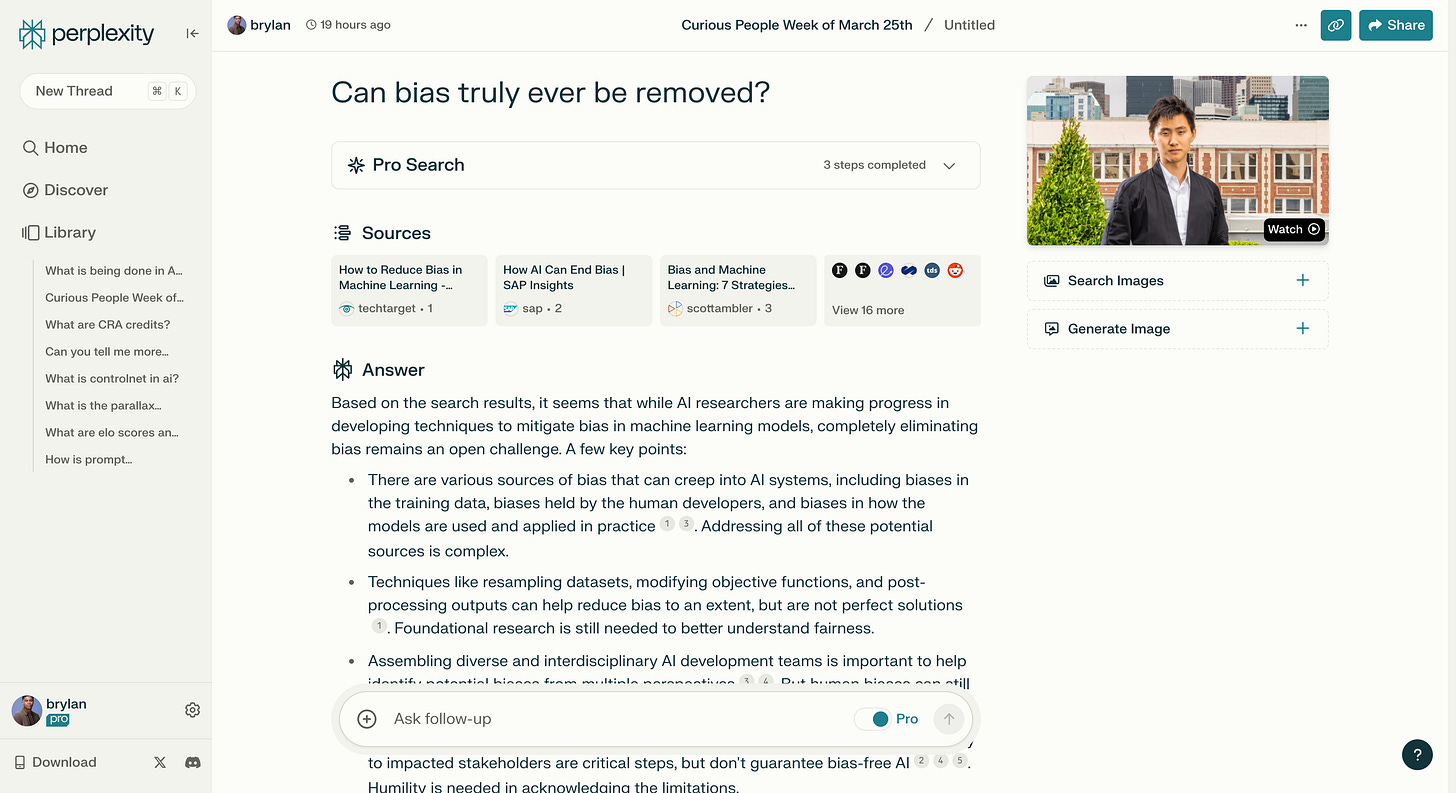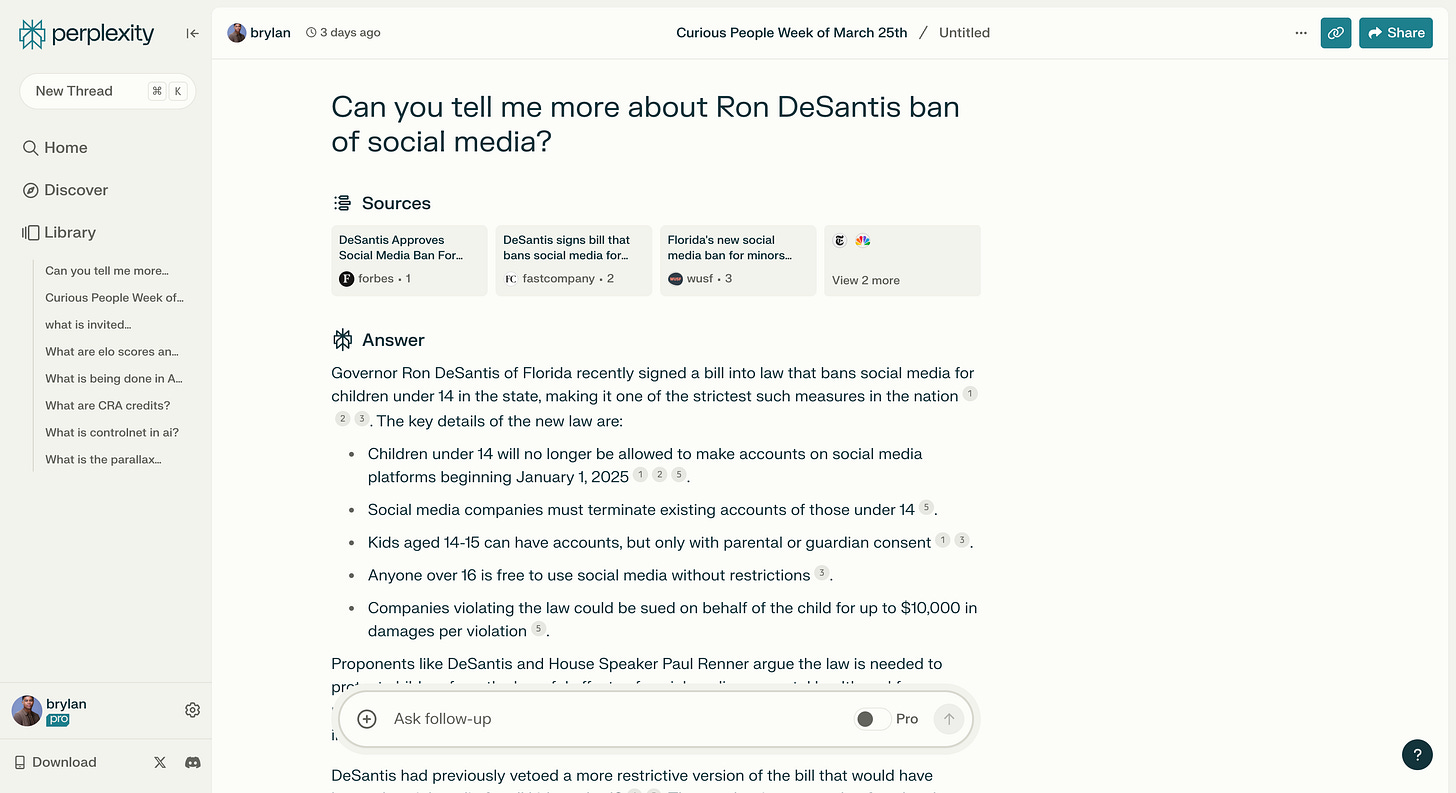Questions I asked this week...
Exploring the edges of our awareness to uncover the unevenly distributed future that most of us can barely imagine.
This week I attended a fireside chat of emerging managers who are raising funds. They mentioned taking advantage of CRA credits, which I had never heard of before. It made me wonder: what exactly are CRA credits? CRA stands for the Community Reinvestment Act, a law passed by Congress in 1977 to encourage banks to meet the credit needs of the communities where they operate. Venture capital funds focused on investing in underserved communities may be able to help banks earn CRA credits. By putting money into these specialized funds, banks can boost their CRA performance while the VC funds get additional capital to deploy.
(2) Can bias truly ever be removed?
That was my question after I tuned into the Black AI Think Tank's livestream on Ideas, Entrepreneurship, and Intellectual Property. The conversation featured Black experts with deep experience in AI research and development. During the discussion, they touched on the critical issue of AI bias being inherently present in training data. It made me wonder about the latest research on this topic and whether bias can ever be fully eliminated from AI systems. Experts increasingly believe that some degree of bias is inevitable as it's extremely difficult to curate perfectly balanced datasets. However, there are techniques to mitigate bias such as adjusting datasets, modifying AI models, and adding human oversight.
(3) What are Elo scores and how do they relate to AI model evaluation?
I recently came across information about Perplexity AI's
pplx-7b-onlineandpplx-70b-online models, which use Elo ranking to evaluate performance across dimensions like freshness, factuality, helpfulness, and overall quality. Model evaluations are crucial for comparing different AI systems, but I wasn't familiar with Elo scores. It made me ask the question: What are Elo scores, and how are they used in evaluating AI models? Elo scores originated as a rating system for chess players. In the context of AI, Elo scores can be used to rank models based on their performance on specific benchmarks.
(4) What is invited infringement when it comes to IP and patents?
I attended the Intellectual Property Awareness Summit at Northwestern University, which brought together top lawyers, entrepreneurs, and investors, including one speaker with 200 patents. A thought-provoking discussion emerged around patents and AI-generated content, touching on concepts like the "Italian plumber problem" and "Théâtre D'opéra Spatial." The term "invited infringement" came up, which I hadn't heard before. It made me wonder: What exactly is invited infringement in the context of intellectual property and patents? Invited infringement refers to situations where a patent holder purposefully encourages others to infringe upon their patent. This can happen when a company sells a product or service that requires customers to use it in a way that infringes on an existing patent.
(5) Can you tell me more about Ron DeSantis ban of social media?
Chamath Palihapitiya's recent LinkedIn post about a potential ban on social media caught my attention. With the ongoing controversy surrounding TikTok's possible blocking and the criticism Instagram has faced for its impact on youth mental health, the idea of restricting social media platforms hasn't been far from the headlines. Recently Governor Ron DeSantis of Florida signed a bill into law that bans social media for children under 14 in the state beginning January 1, 2025, making it one of the strictest measures in the nation.





